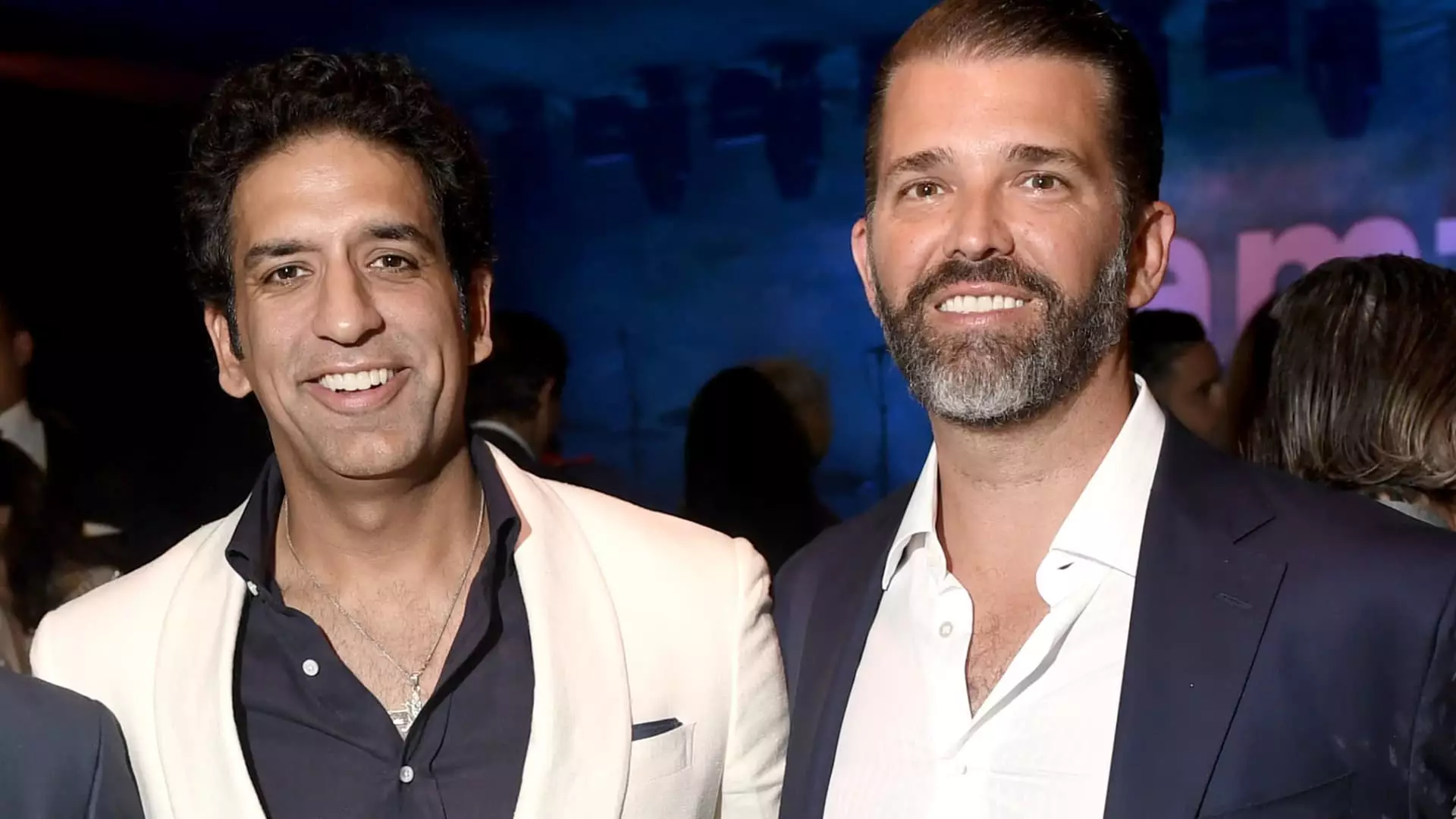In an age marked by glaring socio-economic disparities, the emergence of exclusive private membership clubs tailored for the affluent seems more an affront than a societal innovation. Washington, D.C.’s latest addition, the Executive Branch, co-founded by none other than Donald Trump Jr., has set a staggering $500,000 membership fee that positions it far above its contemporaries in a city already rife with elitism. The mere existence of a waiting list for such an exorbitant fee is troubling, revealing a financial landscape where wealth dictates access and privilege, reinforcing societal divisions.
What concerns me most is not simply the cost of membership, but the people who are invited into this exclusive sanctuary. With an assemblage of powerful CEOs, tech moguls, and political figures, the Executive Branch distills decision-making power into the hands of a few, creating an oligarchic echo chamber. The co-founders, including key figures connected to President Trump, comprise a network that could potentially shape legislation and federal policy more effectively than the average citizen could even dream about.
Politics and Privilege: An Unsavory Union
The proximity of the Executive Branch to political power raises significant ethical concerns. The presence of current and former administration officials at the club’s launch party suggests an intimate relationship between wealth, power, and governance. This is distressing not just because of the implications for lobbying and policy influence, but also because it signifies a departure from the democratic ideals that are supposed to underpin our political system.
By offering exclusive access to lawmakers and decision-makers, clubs like the Executive Branch essentially monetize influence. This translates riskily into an environment where the rich have a louder voice in policy-making than ordinary voters. The fundamentals of democracy are compromised when legislative decisions are made within the hallowed walls of an elite club instead of open forums accessible to everyone. It’s an entrenchment of privilege that could stymie innovative ideas and grassroots movements aimed at addressing real societal issues.
Is Socialization Worth the Cost?
Within the narratives surrounding elite clubs, one often hears discussions of social networking and the potential for collaboration among high-profile members. In theory, this could result in innovative solutions to complex problems. However, the exclusivity of the Executive Branch starkly contradicts one of the fundamental tenets of collaboration — diversity of thought. When membership is predicated on affluence and political connections, the ideas that emerge are likely to be homogenous and narrow-minded.
Moreover, examine what of the inclusive social fabric of Washington that gets undermined in favor of exclusivity. What does it mean for a city, so rich in history, culture, and diverse ethnic backgrounds, when a new hub for social gatherings becomes the exclusive domain of the extraordinarily wealthy? This club is not just a venue; it is a societal statement that certain voices are deemed more valuable than others, setting a precedent that marginalizes various communities.
The Illusion of Exclusivity
While proponents may tout the Executive Branch as an exciting new addition to the Washington social scene, the reality is that such establishments foster an illusion of exclusivity that is harmful to society at large. The façade of being part of an elite group overlooks the fact that diversity in ideas is not merely an asset; it is a necessity for meaningful societal progress.
Moreover, the disparity in membership costs starkly underlines the disparity in access to power and resources. The associated annual dues, although yet to be disclosed, will likely further exacerbate this divide. The opportunity to socialize and network with the ‘who’s who’ should be available to a broader demographic rather than confined to the wealthiest elites in Washington.
The continuing proliferation of such clubs rooted in privilege reflects a societal trend that prioritizes wealth over wisdom, access over engagement, and exclusivity over inclusiveness. This evolving landscape is not just a concern for Washington D.C.; it signals a worrying trajectory for the ideals of democracy across the nation, suggesting a future where the average citizen feels increasingly alienated from decision-making processes that directly affect their lives.

